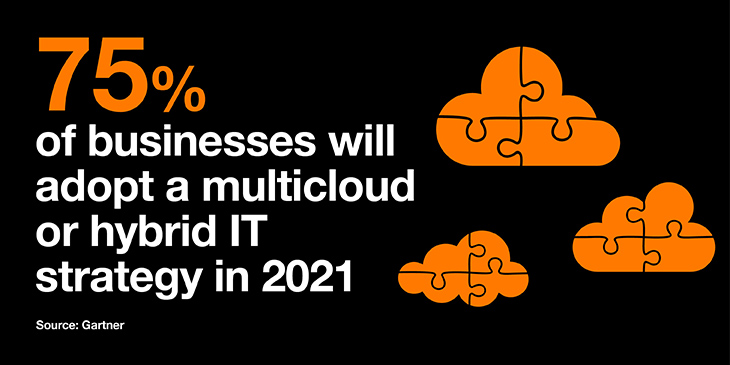The global health crisis has emphasized the need for operational agility and put the COO’s role in the spotlight. A COO is an essential component for digital success, according to Gartner, as they should understand the business and the wider ecosystem in which it operates.
In addition to managing day-to-day operations, many COOs have taken on additional responsibilities in terms of change management and digital transformation. According to IDC, this includes a rethinking of operations, technology arbitration and integration support, enhanced customer experience, and risk management. These are especially pertinent to manufacturing industries.
The biggest priority for COOs is to increase efficiencies and effectiveness for businesses to take advantage of opportunities in the digital economy. This means not only establishing an agile, secure, data-driven supply chain where required, but possibly radically reinvent the way the value chains deliver value and organize. At the same time, some COOs are stepping up to orchestrate the rollout of digital products and services that will significantly impact the performance of the business and make it more resilient by way of innovation. Cloud can deliver in these key areas.
Operating in a multicloud environment
Gartner predicts that we will see 75% of mid-size and large organizations adopt a multicloud or hybrid IT strategy this year.
Cloud-based applications are increasing rapidly as enterprises adopt software-as-a-service (SaaS) and cloud-native principles to accelerate digital business. Enterprises are already looking to integrate artificial intelligence (AI), the Internet of Things (IoT) and edge computing to push the second-generation digital business forward and use innovation to drive real competitive advantage.
The issue is that many enterprises still don’t understand how to operate their multicloud estates in a way that fosters both agility for value creation and operational efficiency!
Cloud has the scope to increase business flexibility and, if properly managed, even reduce costs and operational expenses through more granular consumption models. At the same time, the introduction of DevOps best practices can work to optimize software development, deployment and operations – increasing the product quality for end users. A multicloud adoption and management plan, however, is critical to optimally address business flexibility and stay competitive.
A trusted partner can help an enterprise identify bottlenecks and advise on the best approach to support business outcomes within the flexibility of a cloud-native mindset.
Insufficient skills are delaying migrations
COOs must have the ability to see the bigger picture, especially when it comes to resources. Cloud and security skills, in particular, are in very short supply. New ways of developing applications and the new nature of end-user services brings fundamentally new complexities and security challenges to the table, such as serverless security or explainable AI. All companies globally need to master the new security skills in order to stay sustainable in their business.
According to Gartner, insufficient cloud infrastructure-as-a-service (IaaS) skill will delay 50% of enterprise IT organizations in their cloud migration until 2022 or longer. With application modernization and refactoring taking hold, service providers can’t train and certify people quickly enough to fill the skills gap.
Serverless computing is a key technology that is defining the way enterprises build, consume and integrate cloud-native applications, according to Gartner. The approach doesn’t get rid of servers but eliminates the need for infrastructure provisioning and management. It has numerous benefits, including reducing development costs, improved resource management and elastic scalability.
The first emerging use of serverless computing is in function-platform-as-a-service (fPaaS). Gartner forecasts that half of global enterprises will have deployed fPaaS by 2025. The hurdle to growth here again is shortage of developers on the market with serverless skills. The same can be said for platform-as-a-service (PaaS) and software-as-a-service (SaaS).
To overcome this issue, COOs are advised to work with trusted managed services providers who have cloud-native skills to speed up these migrations and make them successful.

A surge in remote working
The massive increase in remote working over the past twelve months has put enormous pressure on COOs regarding cloud and business continuity.
The landscape isn’t going to change any time soon. Gartner maintains that by 2022, 75% of organizations that have set up work-from-home programs will retain it as an option. Cloud will be critical in supporting these remote workers going forward.
Gartner recommends that enterprises prioritize public cloud environments to host critical workloads, including mobile applications, collaboration, content management, videoconferencing and virtual desktops. The analyst firm argues that cloud operating environments are inherently resilient and provide greater availability guarantees than private data centers.
Managing transformation for a more resilient business
Sustaining the rapid pace of digital change is proving a significant challenge for COOs! As enterprises roll out more technology and adopt a cloud-centric approach, COOs must balance day-to-day operations with resilience and short and long-term business objectives. This is becoming further complicated by bimodal operations, new value chains and cultures enforced by Digital Business Transformation.
An agile and robust cloud strategy is imperative to advance its use across the business. COOs with a strong business vision in addition to an analytical view of an organization’s administrative and functional operations are central to drawing up a successful cloud strategy.
Cloud projects are complex, and cloud migration takes time. A value-centric, well-thought-out strategy highlights the benefits and challenges of the cloud and how technology can be aligned to business outcomes and new security and governance policies. A COO’s outlook is an essential ingredient in any cloud cookbook.
To find out how COOs can map out a cloud transformation strategy that embraces innovation, resilience and transformation, download our ebook: Cloud: making sure the enterprise is digitally ready, always.

As a Chief Evangelist, Jan Aril focuses on sharing transparent and inspiring knowledge about his areas of expertise, such as public cloud, big data and AI, with the aim of helping companies take on a more sustainable innovation journey. He has more than two decades of experience in the IT-industry and has held positions from full stack development and sysadmin to C-level and board member. He works across the brands of Basefarm and Orange Business.